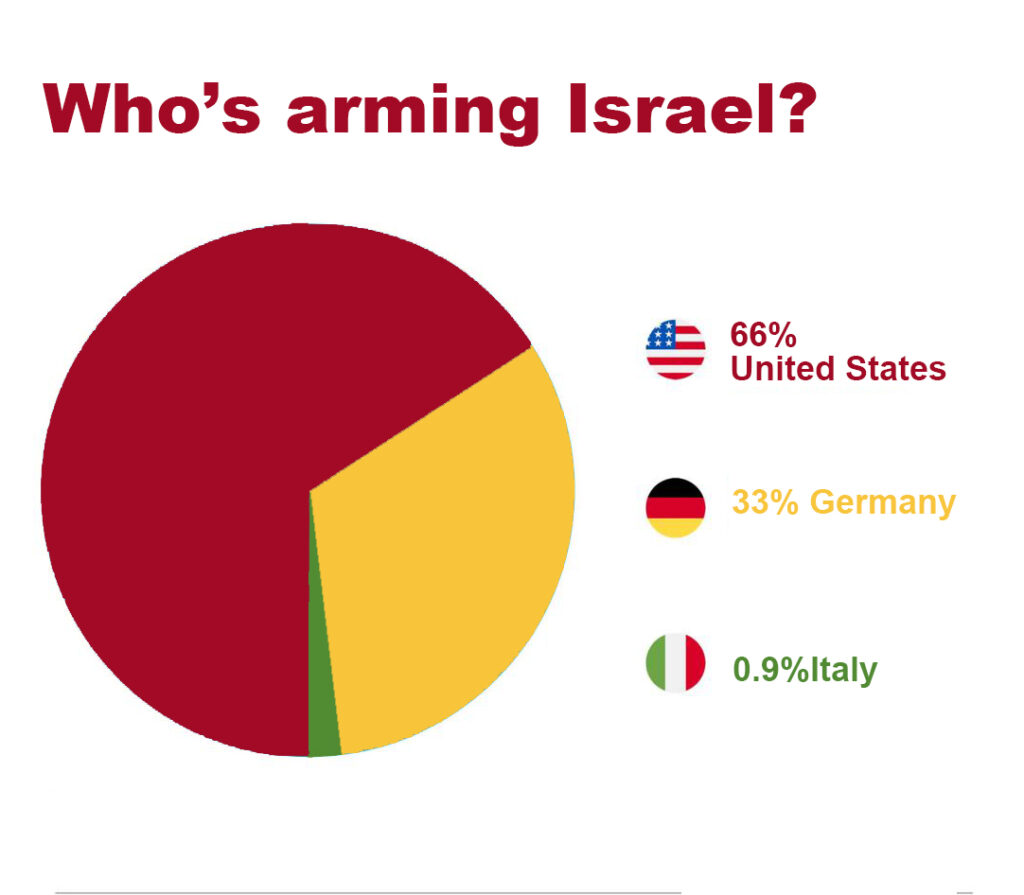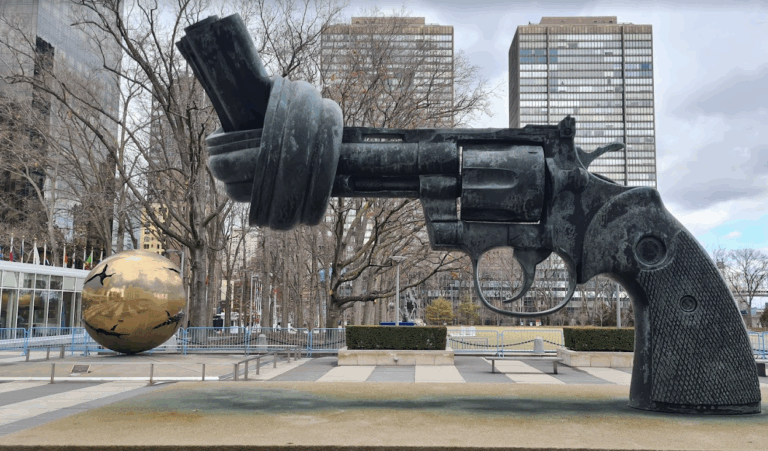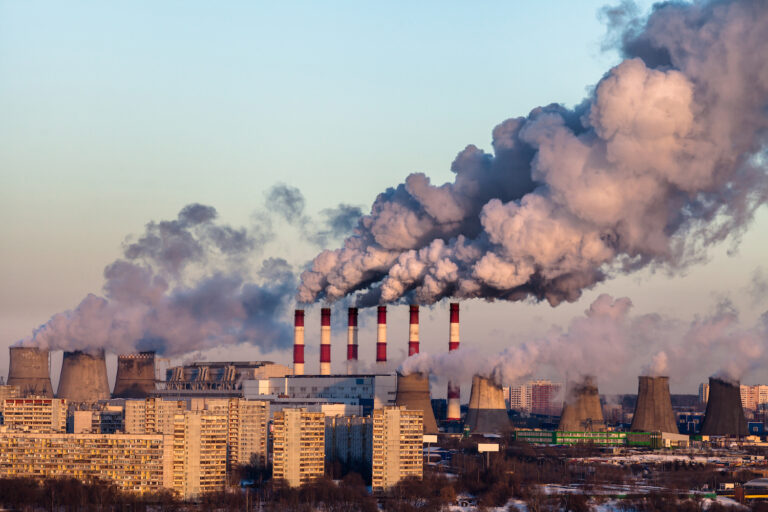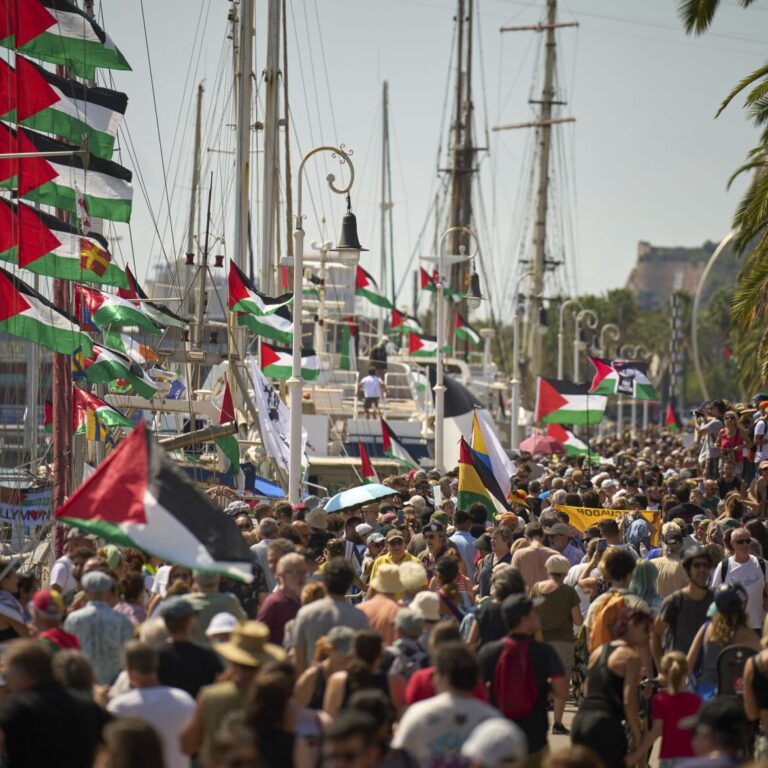by Andrea Tucci,
Across Europe, a growing wave of criticism is being directed at Israel’s conduct in the Gaza Strip. A significant signal came with the European Commission’s decision to begin reviewing the EU-Israel Association Agreement, a move supported even by countries traditionally reluctant to criticize Israel.
Even Germany, historically aligned with Tel Aviv, has shown an unprecedented shift in tone. Chancellor Friedrich Merz declared that he “no longer understands the actions of the Israeli army in Gaza or their objective,” adding that “inflicting such devastating harm on the civilian population, as has increasingly been the case, can no longer be justified as a fight against Hamas terrorism.”
Meanwhile, from Madrid, Spanish Foreign Minister José Manuel Albares, has called for an arms embargo on the Jewish State: “The last thing the Middle East needs right now is more weapons,” he said during the Madrid+ summit, which brought together representatives from Germany, France, the United Kingdom, Italy, Egypt, Jordan, Saudi Arabia, Turkey, Morocco, and Brazil to discuss a ceasefire and a two-state solution.
Since October 7, 2023, and with the ongoing war in Gaza, some European nations have already halted arms supplies or suspended export licenses to Israel. However, pressure must be applied to the three countries responsible for nearly all of Israel’s arms supply: the United States, Germany, and Italy.
The United States is by far Israel’s largest and most consistent arms supplier, accounting for approximately two-thirds of Israel’s military imports between 2020 and 2024. These include aircraft, armored vehicles, and precision-guided bombs, as well as a multi-year agreement to provide $3.8 billion in aid through 2028. Given the deep cultural and political ties between the two countries, it is highly unlikely that the U.S. will reduce its support. Recent efforts led by independent Senator Bernie Sanders to block billions in military aid to Israel were rejected by the U.S. Senate in April 2025. Germany is Israel’s second-largest supplier. The Berlin–Tel Aviv partnership is also unlikely to be disrupted.
Then there is Italy, which contributes just under 1% of Israel’s arms supply, despite being legally obligated not to. According to Article 1 of Law No. 185/1990, Italy is prohibited from exporting weapons or their components to countries involved in armed conflict or suffering from severe internal instability. Although the Italian government has expressed criticism of Tel Aviv’s actions, and the Defense Minister Crosetto remarked that “the legitimate and sacred war against Hamas has limits, and Netanyahu has exceeded them”, reports show that Rome continued supplying weapons to Israel after the conflict began.

In 2024, the country of “La Dolce Vita” exported €5.2 million worth of weapons and ammunition to Tel Aviv, down from €12.3 million in 2023 and €16.8 million in 2022, still significant figures. The issue is likely to ignite political debate in Italy in the coming days, as several legal scholars have launched an initiative urging the government not to renew the Memorandum of Understanding with Israel on military and defense cooperation, which is set to renew automatically on June 8, 2025.
This agreement, signed in 2003 and largely shrouded in military secrecy, makes it impossible to know the full details of military exchanges between Italy and the government of Tel Aviv. Its tacit renewal would signal continued Italian support for Israel’s war machinery, which has devastated Gaza, causing over 60.000 Palestinian deaths in the past two years alone,including 18.000 children.
Despite growing criticism from allied nations, the Netanyahu government has not toned down its rhetoric; on the contrary, it has escalated its diplomatic confrontation with Europe. Ahead of the upcoming UN conference on the two-state solution,organized by France and Saudi Arabia and scheduled for early June in New York,Israel’s Minister of Strategic Affairs and Mossad chief Ron Dermer wrote in Haaretz:
“If you recognize the Palestinian State, Israel will respond by annexing the West Bank.”
Similarly, Israeli Foreign Minister Gideon Saar warned the United Kingdom that “Unilateral actions against Israel will be met with unilateral actions by Israel.” Stances from Israel? I’d call them threats instead.
Meanwhile, rumors have been circulating for days that French President Emmanuel Macron may formally propose recognition of a Palestinian state during the New York summit. “The very existence of the Palestinian State can no longer be delayed, it must become a reality,” said French Foreign Minister Jean-Noël Barrot.
Recently, more than one friend has asked me why I pay so much attention to the Palestinian issue.
“As a international reporter focused on human rights, why do you concentrate so much on this?” someone asked me.
The answer, I believe, is simple.
Palestine is a clear symbol of all the values the West claims to defend: freedom, justice, universal human rights. And it is precisely in Palestine where these values are being most blatantly betrayed.
Certainly, Palestine does not matter more than other global crises,those in Ukraine, Myanmar, Kashmir, or the Democratic Republic of Congo, but it carries a unique significance because it is Western democracies themselves that help sustain the oppression, supplying weapons, political legitimacy, and diplomatic cover.
When we speak out for freedom of expression, for international law, for human dignity, for the right to water, food, and healthcare, we are also speaking of Palestine, and when we condemn attacks on hospitals, schools, and civilian infrastructure; when we oppose forced displacement, home demolitions, and the use of starvation as a weapon, we are still speaking of Palestine.
The response of the so-called democratic, civilized West,of the West that claims to defend human rights,has so far been marked by ambiguity, silence, and hypocrisy.
Time is up.
ENOUGH. Truly enough!!!
It is time to shout it, loud and clear.




